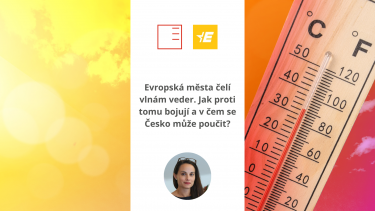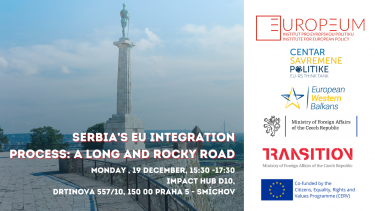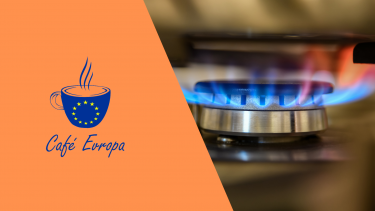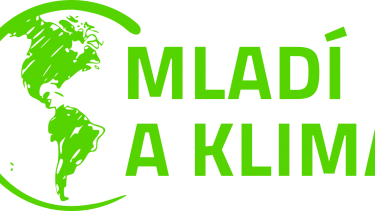EURACTIV: European cities face heatwaves. How are they combating it and what can the Czech Republic learn?
Cities in southern and western Europe are adapting to summer heatwaves. What measures are they taking to protect their citizens? In an article for EURACTIV, EUROPEUM Institute Associate Katarína Svitková describes the situation.
Show more
Discussing Ukraine in V4 mainstream media: The future vis-à-vis European integration
The project assesses the production, distribution and consumption of news on Ukraine’s future vis-a-vis European integration by the V4 mainstream media. The aim is to designate both dominant and marginalized narratives, while also analyzing their impact via focus groups. The findings will be presented to stakeholders in order to improve reporting and increase the audiences’ access to information.
Show more PNG
INVITATION | Shaping our Digital Future: Tackling Disinformation in the EU, case of Central and Eastern Europe
We cordially invite you to the conference entitled Shaping our Digital Future: Tackling Disinformation in the EU, case of Central and Eastern Europe. The conference will take place on Monday 27 March from 16:30 to 18:45 at the Thon Hotel EU, Rue de la Loi 75 1000 Brussels.
Show more
INVITATION | Serbia’s EU integration process: A long and rocky road
We would like to invite you for a public discussion and screening of a documentary on Serbia’s EU integration process. The debate will take place on Monday 19 December, 15:30 - 17:30; at Impact Hub D10 in Prague.
Show more
Klimatickakoalice.cz: The European Parliament today missed an opportunity to position the EU as a clear climate leader
According to Michal Hrubý, our researcher, the state's responsibility for the overall reduction of emissions in transport is a signal for the transition to cleaner mobility. In his commentary, he discusses what challenges await us in the transition to emission-free car models after 2035 and what opportunities are open to the Czech Republic in this direction. Kateřina Davidová, a researcher at our institute, adds her words on European climate policy, describing the possible impacts of weakening the EU ETS.
Show more
INVITATION: Café Evropa online: The future of European energy - how to ensure stable and clean energy sources without Russia?
We would like to invite you to the Café Evropa debate on 21 March at 17:30 on the topic "The future of European energy - how to ensure stable and clean energy sources without Russia?". The Russian invasion of Ukraine has, among other things, further fuelled the question of energy security in the Czech Republic and the EU and the future of energy in our country. The current security situation points to the need to diversify energy sources as soon as possible, i.e. to secure energy supplies from different regions and countries in order to avoid excessive dependence on Russia. There are also views in the public debate that coal extraction could be temporarily increased, which would enable some countries to cover any shortfalls in resources. Is a complete or even partial halt of Russian gas supplies to the Czech Republic and the European Union a realistic option? What impact would this have on our energy security? How much further increase in energy prices can we expect in this case? How should EU countries react and help households and industry cope with the expected increase? Could a possible temporary increase in coal extraction mean a return to fossil fuels and the end of the EU's climate ambitions? Or could the current problematic situation further accelerate the energy transition?
Show moreImpacts of the Covid pandemic on the democracies of EU countries
Christian Kvorning Lassen from the Institute for European Policy EUROPEUM together with Jan Kovář from the Institute of International Relations wrote a comment "Disastrous pandemic management puts the Czech Republic at a critical democratic juncture" for the EPIN Report on the impact of the COVID pandemic on EU democracies.
Show moreThe Transatlantic To-Do List: Biden's Progress Report
Last October, the third annual Transatlantic Policy Forum (TAPF) took place virtually. The Forum not only brought together a wide range of experts but provided inputs and interesting takeaways, including recommendations and a Transatlantic To-Do List, which outlined action points on how the US and the EU should approach the given challenges ranging from increased multilateral collaboration to further development of economic and security engagement. A little over 6 months into his administration, our EUROPEUM experts Danielle Piatkiewicz and Miroslava Pisklová have updated their Transatlantic To-Do List and their 100 day’s progress report to reflect on where Biden’s foreign policy stands now over a half a year into the new US administration.
Show more PDF
INVITATION: Prague Climate Talks — USA back in business: what to expect from US climate policy?
We would like to invite you to this year's first Prague Climate Talks, focusing on high-level discussions on the complex issue of climate change. The debate is organised by the Institute for European Policy EUROPEUM together with the Heinrich-Böll-Stiftung Prague under the auspices of the UN Czech Republic. The media partner of the project is Deník N. On Thursday, April 29, we will focus on climate changes in the US after the election of President Joe Biden. The event will take place from 5:00 to 6:30 pm online on our Facebook.
Show more
Workshop Mladí a klima
EUROPEUM Institute for European Policy, together with the Friedrich-Ebert-Stiftung, offers workshops about climate change for high school students.
Show more PDF

Staroměstské náměstí 4/1
Prague 1 - Staré Město
110 00
tel.: +420 212 246 552
email: europeum@europeum.org
https://www.europeum.org









